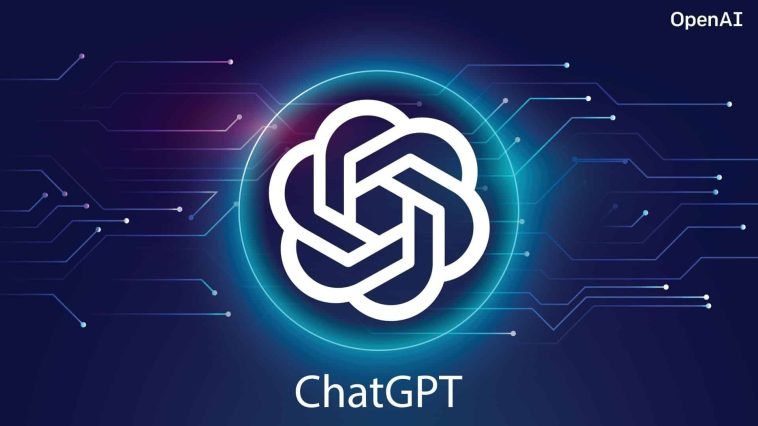Introduction.
Writing a thesis is a significant milestone in your academic journey, requiring careful planning, extensive research, and effective communication of your ideas.
In the digital age, advancements in artificial intelligence have opened up new possibilities for academic support.
One such tool is ChatGPT, a powerful language model developed by OpenAI. ChatGPT can assist you in various stages of the thesis writing process, providing guidance, brainstorming ideas, offering suggestions, and helping you refine your arguments.
In this guide, we will explore how you can effectively use ChatGPT to write your thesis, maximizing its potential to enhance your research and writing skills.
How Do I Write a Thesis Using ChatGPT?
Writing a thesis can be an overwhelming and time-consuming task, but with the advancements in technology, there are now tools available to assist you along the way.
One such tool is ChatGPT, an AI-powered language model developed by OpenAI.
In this article, we will explore how you can effectively use ChatGPT to write your thesis and maximize its potential to enhance your research and writing skills.
1. Topic Selection.
Choosing the right topic is crucial for a successful thesis. ChatGPT can help you brainstorm ideas and narrow down your options.
Begin by providing ChatGPT with some general areas of interest or keywords related to your field. It will generate potential research topics based on your input.
Evaluate these suggestions, consider their feasibility, and refine them further. ChatGPT can also provide you with additional insights and relevant literature to aid in your decision-making process.
2. Literature Review.
A comprehensive literature review is essential for establishing the context and significance of your research.
ChatGPT can assist you in this process by suggesting relevant sources and helping you summarize key findings.
Provide ChatGPT with a brief overview of your research area and specific research questions. It will generate a list of seminal papers, recent studies, and related resources for you to explore.
Remember to critically evaluate the sources provided and supplement them with your research.
3. Outlining and Structure.
Creating a clear and logical structure is crucial for organizing your thesis effectively. ChatGPT can help you outline your thesis by generating an initial structure based on the information you provide.
Describe the main sections or chapters you intend to include, and ChatGPT will suggest a hierarchical organization.
You can refine and modify the structure as needed, ensuring a cohesive flow of ideas throughout your thesis.
4. Research Guidance.
When conducting research, ChatGPT can provide valuable guidance and suggest relevant sources.
Specify your research objectives, methodologies, or specific areas of inquiry, and ChatGPT will offer suggestions for further investigation.
It can assist in locating academic papers, books, journals, or even specific data sets that align with your research requirements.
Utilize ChatGPT as a research assistant to save time and access a broader range of resources.
5. Writing Assistance.
Writing a thesis involves articulating complex ideas and arguments effectively. ChatGPT can serve as a writing assistant, helping you refine your writing style and structure your content.
Share your draft or specific sections with ChatGPT, and it will provide suggestions for sentence rephrasing, improving clarity, or enhancing the overall coherence of your writing.
However, always remember to critically evaluate the suggestions provided by ChatGPT and ensure that they align with academic standards and your voice.
6. Proofreading and Editing.
Thorough proofreading and editing are crucial to ensure the accuracy and readability of your thesis.
ChatGPT can help you in this final stage by identifying grammar errors, suggesting improvements in sentence structure, and pointing out any inconsistencies in your writing.
It can act as a second pair of eyes, aiding in the polishing process and increasing the overall quality of your thesis.
It is important to note that while ChatGPT can be a valuable tool in your thesis writing process, it should not replace critical thinking, independent research, and feedback from your advisors or peers.
Use ChatGPT as a complementary resource, leveraging its capabilities to streamline your work, enhance your productivity, and improve the overall quality of your thesis.
Embrace the possibilities offered by technology, while also applying your expertise and critical thinking skills, to achieve success in your thesis endeavour.
7. Engage in Dialogue.
ChatGPT is designed to have interactive conversations. Instead of treating it as a one-way interaction, engage in a dialogue with the model.
Ask follow-up questions, seek clarification, and provide additional context. This back-and-forth conversation can lead to more fruitful and insightful responses from ChatGPT.
8. Experiment with Prompts.
Vary your prompts to get different perspectives and generate diverse ideas. Instead of asking straightforward questions, try providing partial sentences, hypothetical scenarios, or even conflicting viewpoints.
This creative approach can help you explore alternative angles and uncover new insights for your thesis.
9. Incorporate Feedback.
While ChatGPT can offer valuable suggestions, remember to incorporate feedback from your advisors, professors, or peers.
Seek their input on your thesis outline, research methodology, and writing style. Balancing the input from human experts and AI assistance can lead to a well-rounded and academically robust thesis.
10. Maintain Ethical Standards.
As you use ChatGPT, it’s important to maintain ethical standards in your research and writing. Ensure that you properly cite and credit any ideas or information generated by ChatGPT.
Be cautious not to plagiarize or misrepresent the AI-generated content as your own. Use ChatGPT as a tool to enhance your work, but always uphold academic integrity.
11. Iterate and Refine.
Writing a thesis is an iterative process. Continuously refine and iterate on your work based on the insights and suggestions provided by ChatGPT, as well as the feedback from your advisors and peers.
Be prepared to revise and restructure your thesis as you progress, ensuring that it reflects your evolving research and analysis.
12. Know the Limitations.
While ChatGPT is a powerful language model, it has limitations. It is not a substitute for human expertise, and its responses are based on patterns and examples from the data it was trained on.
Exercise critical thinking and evaluate the suggestions provided by ChatGPT in the context of your research field and academic standards.
Hey there, dear reader! We hope you’re enjoying the content on our blog. Did you know we have a treasure trove of other insightful articles waiting for you?
Check out the links to the article below to become more productive with ChatGPT.
- How To Start a YouTube Channel With ChatGPT
- How To Start a Blog With ChatGPT
- How To Start an Online Business With ChatGPT
- How To Make Money Online With ChatGPT [UPDATED]
- How To Start an Affiliate Marketing Business With ChatGPT
- How To Become a Freelancer With ChatGPT
- How To Start an eCommerce Business With ChatGPT
- How To Make Money On Fiverr With ChatGPT
- How To Grow Your Twitter Followers With ChatGPT [UPDATED]
- How To Grow Your Instagram Followers With ChatGPT [UPDATED]
- How To Start a Faceless YouTube Channel With ChatGPT
- How To Use ChatGPT For Email Marketing
- How To Make Money With ChatGPT With Zero Money
- How To Start a Business Using ChatGPT
- How To Use ChatGPT For Freelancing
- How To Make Money On Upwork Using ChatGPT
Conclusion.
By incorporating ChatGPT effectively into your thesis writing process, you can harness its capabilities to streamline your work, generate ideas, and refine your writing.
Remember, however, that ChatGPT is a tool to support your research and writing journey, and the ultimate responsibility for the content and quality of your thesis lies with you.
Utilize the power of AI, but always maintain your own academic integrity and scholarly contribution.
Writing a thesis is a challenging undertaking, but with the assistance of tools like ChatGPT, you can navigate the process more efficiently and produce a well-crafted piece of scholarly work.
Embrace the possibilities of AI technology, collaborate with human experts, and stay dedicated to your research goals. Good luck on your thesis writing journey!
Hey there, dear reader! We hope you’re enjoying the content on our blog. Did you know we have a treasure trove of other insightful articles waiting for you?
Check out the links to the article below to become more productive with ChatGPT.
- How To Start a YouTube Channel With ChatGPT
- How To Start a Blog With ChatGPT
- How To Start an Online Business With ChatGPT
- How To Make Money Online With ChatGPT [UPDATED]
- How To Start an Affiliate Marketing Business With ChatGPT
- How To Become a Freelancer With ChatGPT
- How To Start an eCommerce Business With ChatGPT
- How To Make Money On Fiverr With ChatGPT
- How To Grow Your Twitter Followers With ChatGPT [UPDATED]
- How To Grow Your Instagram Followers With ChatGPT [UPDATED]
- How To Start a Faceless YouTube Channel With ChatGPT
- How To Use ChatGPT For Email Marketing
- How To Make Money With ChatGPT With Zero Money
- How To Start a Business Using ChatGPT
- How To Use ChatGPT For Freelancing
- How To Make Money On Upwork Using ChatGPT






GIPHY App Key not set. Please check settings